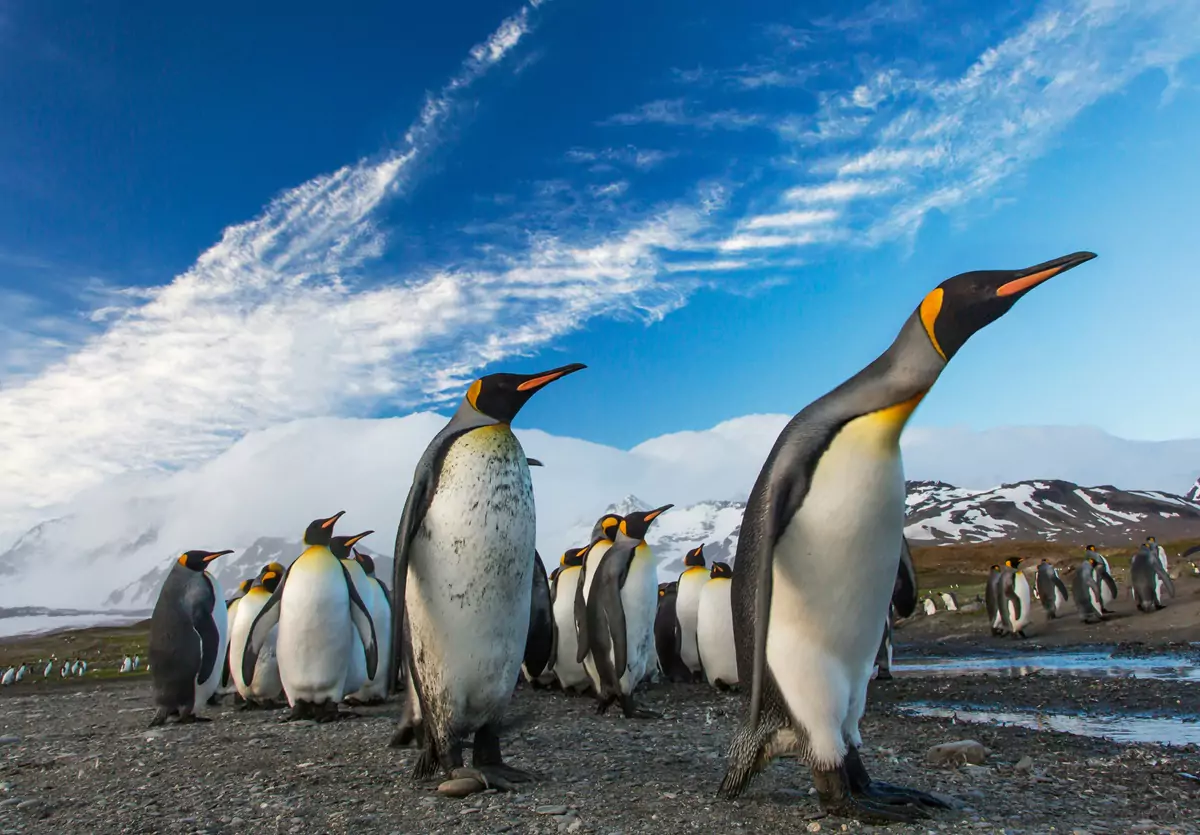A team from the Centre Scientifique de Monaco has joined with an international group of researchers and scientists to establish a new method of tracking populations of the threatened Antarctic emperor penguin species that ingeniously combines satellite imagery, phenological data and behavioural models.
With their natural habitats facing dangerous degradation due to climate change, Antarctic emperor penguins are becoming increasingly endangered, and it is estimated that populations of the world’s tallest and largest penguin species could fall by as much as 90% by 2100.
In a bid to track their colonies and mating habits more closely, while limiting human interference, researchers from the Centre Scientifique de Monaco (CSM), the Paul-Emile Victor French Polar Institute, Germany’s Alfred-Wegener-Institut, France’s Centre National de la Recherche Scientifique and the Woods Hole Oceanographic Institution have joined forces to establish a new way of following the health of colonies from a safe distance.
The new methodology is based on data collected by satellite over the past two decades, behavioural models and phrenological data. This will allow scientists, who have been previously unable to track the populations by satellite between October and April due to the lack of light in the southern region, to use additional sources of data to get a clearer on-the-ground picture of the overall situation.
“This research has the potential to transform the difficult-to-study emperor penguin into the Southern Ocean’s ‘canary in the coal mine’ and serve as an early warning system for ecosystem health,” explains Daniel P. Zitterbart, an Applied Ocean Physicist from the University of Erlangen-Nuremberg and Woods Hole. “Using this new method, our next goal is to use annual satellite imagery to obtain accurate population and breeding success figures for the 66 emperor penguin colonies known to date.”
By refining their approach, scientists believe they will be able to obtain more accurate counts of emperor penguins. The data collected will not only aid in protecting this iconic threatened species, but also highlight the global effects of climate change.
Read related:
Aaron Gekoski’s ‘See No Evil’ wins the FPA2’s 2024 Environmental Photography Award
Join the Monaco Life community – sign up for the Monaco Life newsletter, follow our Podcasts on Spotify, and check us out on Threads, Facebook, Instagram, LinkedIn and Tik Tok.
Photo source: Ian Parker, Unsplash
